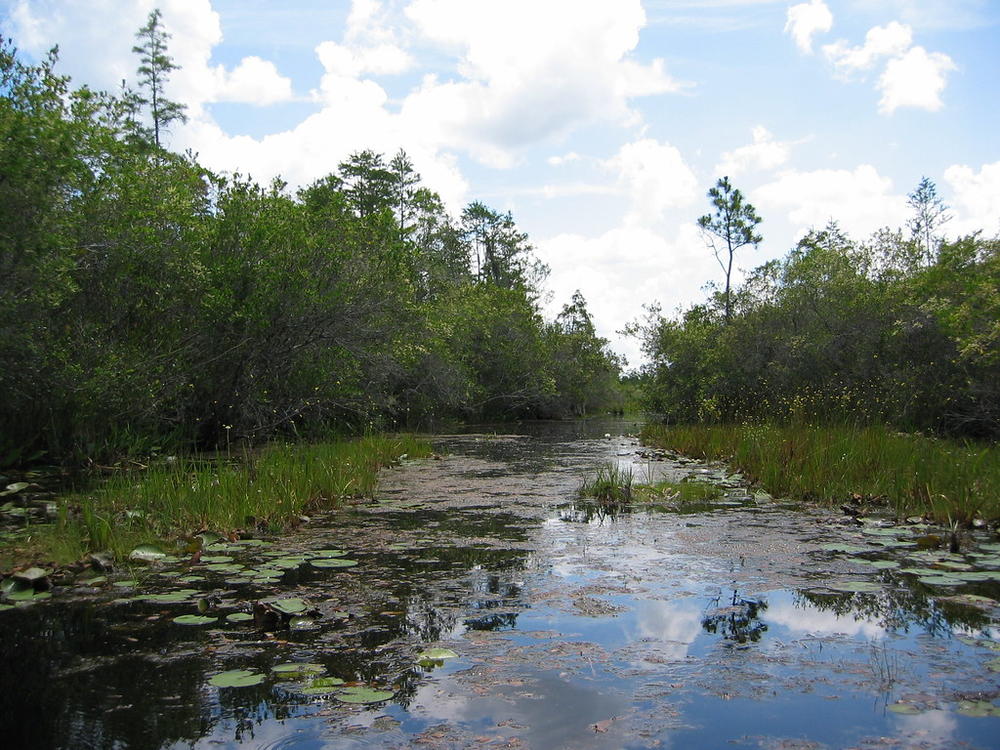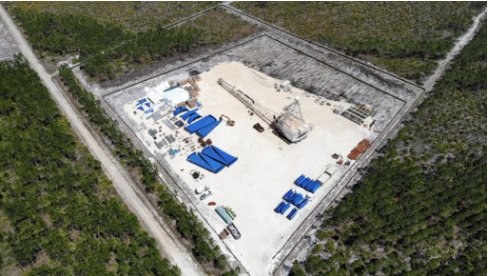
Section Branding
Header Content
Mining company sues Army Corps over project near Okefenokee
Primary Content

Mary Landers, The Current
Alabama-based Twin Pines Minerals filed suit against the Army Corps of Engineers last week, claiming the federal agency erred when it bowed to “stakeholder pressure” earlier this month and made it harder for the company to get permits to mine near the Okefenokee National Wildlife Refuge.
Twin Pines has proposed mining for titanium dioxide and other heavy minerals about three miles from the edge of the Okefenokee along a line of ancient sand dunes called Trail Ridge. Conservation groups have protested the project since it was first proposed in 2019, saying it threatens to disrupt the flow of water into and out of the environmentally and culturally important swamp.
In 2020 and 2021, the Corps had examined the land to be mined and determined that none of it was subject to the Corps’ jurisdiction. Because the federal government lacked jurisdiction under the Clean Water Act to regulate this project, Twin Pines needed only state permits to proceed, the Corps indicated.

But on June 3 the Corps’ reversed that decision saying it had failed to consult properly with the Muscogee (Creek) Nation, which has long-standing ties to the Okefenokee area. The land in and around the refuge, the largest east of the Mississippi, is believed to contain numerous burial grounds.
In its filing, Twin Pines maintains “The Twin Pines Approved Jurisdictional Determinations were issued in compliance with all laws, regulations, and policies — including the tribal consultation policy — in effect when they were issued.”
More specifically, the company contends that the Corps has not historically had a policy of consulting with tribes on determining its regulatory authority over wetlands.
Through its spokesperson Chip Stewart, Twin Pines declined to comment on the lawsuit.
Effects questioned
Josh Marks, an environmental attorney who was a leader in the fight against the Dupont Company’s mining proposal’s in the 1990s, said Twin Pines “simply can’t be trusted.”
“This lawsuit is disappointing but not surprising, as it is yet another example of how TPM simply can’t be trusted,” he wrote in an email. “Right after the Corps of Engineers announced its decision, Steve Ingle, Twin Pine’s president, said he was fine with it, that Twin Pines would follow the regulations before them at any given time, he was not surprised by the change, and Twin Pines has no say in what regulatory agencies do. But now only three weeks later he has flip flopped. The most glaring previous example was when he told the Corps and the State of Georgia in certified permit applications that Twin Pines had a lease on the neighbor’s property for mining, which was totally false.”
Twin Pines’ complaint states, “The mining process is environmentally benign.”
Marks disagrees.

“This flies in the face of the overwhelming scientific consensus that Twin Pines project will in fact lower the swamp’s water level, as evidenced by reports from two of the nation’s preeminent hydrologists at UGA and a letter signed by over 40 scientists last year,” Marks wrote. “And contrary to their statement that the titanium dioxide they seek is desperately needed, the largest titanium dioxide producer in the country, Chemours, stated only a few months ago that there was ample titanium dioxide supply for the next 10+ years and that they had no intent to buy or mine titanium dioxide from next to the Okefenokee.”
Marks called for Twin Pines to “abandon their plans and instead commit to permanently protect the Okefenokee for current and future generations.”
Who's involved
Attorneys filed the complaint in U.S. District Court in Waycross on Wednesday. Mark D. Johnson of Gilbert, Harrell Sumerford & Martin P.C. in Brunswick, and Lewis Jones and John L. Fortuna of Jones Fortuna LP in Decatur are representing Twin Pines.
The complaint names both the U.S. Army Corps of Engineers plus five individuals within the Army and the Corps as defendants. They are: Secretary of the Army Christine E. Wormuth, Assistant Secretary of the Army (Civil Works) Michael L. Connor, Chief of Engineers Ltg. Scott A. Spellmon, Commander of the South Atlantic Division Jason E. Kelly, and Commander of the Savannah District Col. Joseph R. Geary.
An Army spokesman indicated the Army does not comment on ongoing litigation.
This story comes to GPB through a reporting partnership with The Current, providing in-depth journalism for Coastal Georgia.

